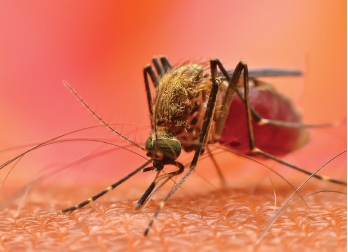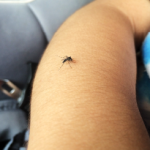
Digital Images Studio / shutterstock.com
Chikungunya is among a group of 16 diseases transmitted through mosquito, tick or flea bites that is of increasing public health concern in the U.S. Although few rheumatologists are likely to diagnose patients with the acute phase of the disease, they may encounter a handful of patients each year who complain of persistent, and often debilitating, arthritis months and even years after a one- to two-week bout of fever, rash and joint pain following travel to a chikungunya-endemic country.
The Centers for Disease Control & Prevention reports that chikungunya virus (CHIKV) disease, transmitted by the Aedes albopictus and Aedes aegypti mosquitoes, became a nationally notifiable condition in 2015. The mosquito-
borne virus, found in Africa, Asia and the Indian and Pacific Ocean regions since the mid-2000s, was first observed in the Caribbean basin in 2013. Puerto Rico’s first CHIKV epidemic peaked in 2014. By January 2018, 114 cases with illness onset in 2017 had been reported from 26 states, and all were from travelers returning from affected areas. Thirty-six locally acquired cases were reported in Puerto Rico in 2017.
Epidemics of the virus point to the need for rheumatologists to raise their awareness about the symptoms, diagnosis and management of a disease that, although still uncommon, will likely increase in this country. “People are flying to endemic areas, and just about half the world is endemic for chikungunya,” says Aileen Chang, MD, MSPH, assistant professor of medicine at The George Washington University, Washington, D.C.

Dr. Mahalingam
Because of the severity of arthritic disease caused by CHIKV, health officials in countries where outbreaks have occurred since 2006 are taking steps to develop guidelines to tackle the pathogen, according to a multidisciplinary review article in the April 2018 issue of Arthritis & Rheumatology that focuses on implications of acute and chronic inflammation mechanisms in disease management.1
“[Although] there are key differences in the disease mechanisms of rheumatoid arthritis and chikungunya virus arthritis, the similarities found can inform future therapeutic approaches,” says Suresh Mahalingam, PhD, an author of the review and professor of viral immunology and inflammation, and principal research leader and head of the Emerging Viruses and Inflammation Research Group at Griffith University in Queensland, Australia. The multidisciplinary review brought together the perspectives of experts from the fields of epidemiology, clinical medicine and viral immunology.
By January 2018, 114 cases with illness onset in 2017 had been reported from 26 states.
Risk Factors
Dr. Mahalingam and colleagues provide a broad perspective on current information about the virus, including the risk factors for people developing chronic chikungunya arthritis after the acute phase has passed. Age is one factor, with patients 45 years or older potentially exhibiting more severe signs of the disease. A high viral load during the acute phase of the disease (>109/mL) and duration and severity of acute illness are also likely risk factors, he says.

